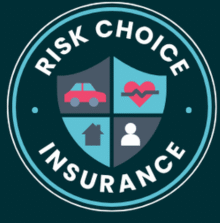
Pennsylvanian company management has both possibilities and difficulties. One thing is certain: you need PA business insurance to safeguard your hard work whether you own a family-owned restaurant in Harrisburg, a tech company in Philadelphia, or a little boutique in Pittsburgh. From property damage and lawsuits to employee injuries and cyberattacks, the proper insurance can make all the difference between survival and financial catastrophe.
This extensive guide will cover what PA business insurance is, why it’s important, the kinds of coverage you need, legal requirements in Pennsylvania, how to pick the best carrier, and ideas for getting the greatest value for your premium.
PA Business Insurance: definition
PA business insurance is a collection of coverage intended to safeguard companies functioning in the state of Pennsylvania. These plans offer financial defence against losses resulting from property damage, lawsuits, theft, natural catastrophes, worker injuries, and other hazards.
Every company is unique so no one-size-fits-all policy exists. Rather, Pennsylvanian business owners often tailor their coverage to fit their particular requirements.
Why Pennsylvanian Business Insurance is Crucially Important
Running a business always carries hazards. The following explains why PA business insurance is not only a need but also a must:
1. Legal Compliance
In Pennsylvania, some forms of insurance—such as commercial auto insurance and workers’s compensation insurance—are mandated by law. Ignoring the necessary coverage could result in fines, legal penalties, and maybe even company closing.
2. Defence Against Legal Action
Expensive lawsuits can result from one consumer slip-and-fall event or a faulty product claim. Legal expenses, settlements, and court rulings can be covered by general liability insurance and professional liability insurance respectively.
3. Preserving Valuables
Major property damage can be done by fires, floods, theft, or vandalism. Insurance for commercial property guarantees protection of your building, machinery, and inventory.
4. Workplace Coverage
Your success mostly depends on your staff. Workers’ compensation insurance guards against any litigation and guarantees protection should an injury or illness related to their employment arise.
5. Client Contracts and Cooperation Programs
Before signing contracts, many clients and commercial landlords ask for documentation of specific kinds of insurance. Complete coverage helps your company to be more reliable and respectable.
Kinds of Business Insurance PA Needs
The most often used and advised categories of PA business insurance are broken out here:
1. Liability Insurance in General
This kind of business insurance is highly important. It addresses advertising injury, property damage, and third-party bodily injury. This policy covers the expenses should a customer slip and fall in your store or a contractor unintentionally damage a customer’s property.
2. Property for Business Use Insurance
guards your company’s assets—including buildings, tools, furniture, machinery, and inventory. It addresses losses brought on by fire, storm, vandalism, and other natural disasters.
Third: Business Owner’s Policy (BOP)
General liability and commercial property insurance are included in a BOP into one, reasonably priced policy. Small to medium sized PA companies would find it perfect.
4. Workers’ Compense Insurance
Pennsylvanian law requires this whether you have one or more employees. Should an employee be harmed on the job, it covers medical expenses, missed income, and rehabilitation.
5. Professional Liability Protection
Crucially important for service-based companies is also Errors & Omissions (E&O) insurance. It encompasses allegations of mistakes, carelessness, or refusal to provide promised services.
6. Insurance for Commercial Automobile
In PA, this is required whether your company owns or uses vehicles. It covers medical expenses concerning business-owned automobiles as well as mishaps and property damage.
7. Online Liability Insurance
Data breaches and cyberattacks abound. This insurance guards against internet fraud, hacking, and financial loss resulting from pilfers of data.
Covering legal bills and damages connected to employee claims of discrimination, harassment, wrongful termination, and more, Employment Practices Liability Insurance (EPLI)
9. Insurance of Product Liability
Critical for distributors, producers, and stores. It covers claims of harm or injury brought about by faulty goods.
In Pennsylvania, is business insurance required?
Yes, and no. While certain insurance categories are optional but highly advised, others are strictly mandated. You have to have this:

Legal required insurance in Pennsylvania: workers’ compensation insurance for every company with employees.
If your company runs vehicles, you will need commercial auto insurance.
Employers have to help the state jobless compensation fund.
Recommended but optional:
Overall responsibility
Property insurance
Expert responsibility
Cyber responsibility
BOP, or the Business Owner’s Policy
Cost of PA Business Insurance: How Much?
Pennsylvania’s business insurance rates rely on various elements:
Industry and risk level
Employee count
Company revenue and scale
Position
Coverage of many kinds
Claims past
Small companies in Pennsylvania might pay on average:
General liability runs $500 to $2,000 yearly.
For a business owner’s policy, $1,000 to $3,000
$1,200 to $2,500 per worker for compensation.
Bundling policies, keeping a safe workplace, and yearly assessment of your coverage help you to save money.
How to Select the Appropriate PA Business Insurance Agent?
How do you pick the correct business policy from so many carriers providing one for Pennsylvania?
1. Reviews and reputation
Search for businesses with solid A.M. Best, Moody’s, Standard & Poor’s ratings. Online comments from other companies owners can also be quite instructive.
2. Industry Particularism
Select a provider aware of your particular sector. Restaurants, IT companies, and construction enterprises, for instance, all run various risks.
3. Customisable Laws
Steer clear of universal remedies. Customisable coverage provided by your insurer should satisfy the particular requirements of your company.
4. Supporting Claims
Crucially, fast, responsive claims service is Find out how quickly the insurer handles claims and how easily their support staff can be accessed.
5. Budgetability
Look for competitive prices; but, never compromise coverage in order to save money. Get quotes from minimum three different sources.
PA Business Insurance Top Insurance Companies
Some well-known and highly regarded insurance companies in Pennsylvania consist:
Throughout
Connecticut Hartford
Travellers
State Farms
Progressive Retail
Chubb
Mutual Liberty
These companies have solid customer service and claims handling reputation and provide a range of policies suitable for small to large companies.
Advice on Cutting Your Company Insurance Rates
Bundle Policies: Combine multiple coverages into one BOP for savings.
Increase Deductibles: A higher deductible means a lower premium.
Improve Security: Install alarms, surveillance cameras, and fire suppression systems.
Maintain a Safe Workplace: Fewer claims mean lower costs over time.
Review Annually: Make sure your coverage grows with your business.
Work with an Independent Agent: They can shop multiple insurers to get the best deal.
Final Thoughts
PA business insurance is more than just a legal requirement—it’s a smart investment in your company’s future. Whether you’re a new startup or a long-standing enterprise, having the right coverage ensures peace of mind and long-term sustainability.
By understanding your risks and choosing tailored coverage, you protect everything you’ve worked so hard to build. Don’t wait until a disaster strikes to think about insurance. Get a policy that fits your business today.
Ready to protect your Pennsylvania business?
Compare quotes from trusted PA business insurance providers and find the coverage you need at a price you can afford.
